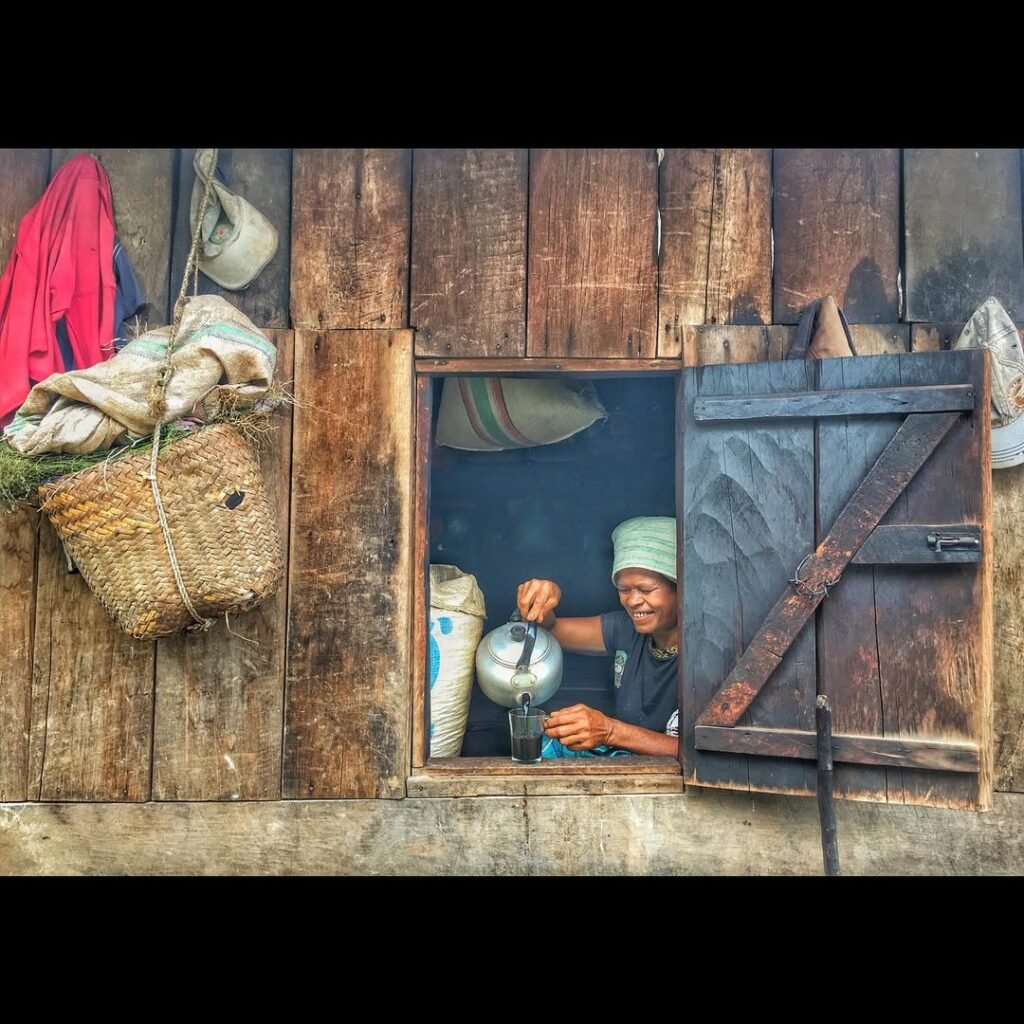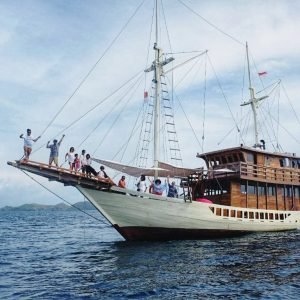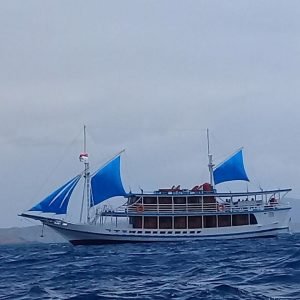The Origin of Coffee Flores in East Manggarai
The rich history of coffee cultivation in East Manggarai, Flores, can be traced back to the early 19th century when it was first introduced by the Dutch colonial powers. The tropical climate, characterized by a combination of high altitude, fertile volcanic soil, and abundant rainfall, provides ideal conditions for coffee growth. These elements contribute to the unique flavor profiles found in local coffee varieties, particularly the well-known Kopi Colol. As coffee plants flourished in this environment, the local population recognized their agricultural potential, which would lead to profound changes in their economy and culture.
Indigenous practices, rooted in traditional knowledge, have played a vital role in the cultivation and processing of coffee in East Manggarai. Local farmers employ age-old techniques, such as organic farming methods and traditional drying processes, which enhance the coffee’s flavor while ensuring sustainability. Over generations, these methods have been refined, allowing communities to maintain high-quality standards while preserving their cultural heritage. The integration of coffee cultivation into daily life has become a cornerstone of the local economy, providing livelihood opportunities for many families.
Culturally, coffee holds significant importance within the East Manggarai community. It serves as a central element in various traditional ceremonies and social gatherings, symbolizing hospitality and unity. For instance, during festive occasions or community meetings, sharing a cup of coffee reinforces social bonds and strengthens relationships among community members. The local economy has also benefited from the coffee trade, as farmers sell their produce to both national and international markets, elevating the prominence of East Manggarai on the global stage. Overall, the origins of coffee Flores in East Manggarai encapsulate a blend of historical, cultural, and economic factors that contribute to the enduring legacy of Kopi Colol in the region.
Kopi Colol The Distinctive Flavor Profile
Kopi Colol, a renowned coffee variety from East Manggarai, Indonesia, possesses a distinctive flavor profile that sets it apart from other global coffee offerings. The unique growing conditions of this coffee are pivotal in shaping its taste. Cultivated in the high-altitude regions of Flores, the coffee plants thrive in a tropical climate characterized by rich volcanic soil, ample rainfall, and cooler temperatures. These elements contribute to the exceptional flavor nuances found in Kopi Colol, delivering a complex, rich taste that is often described as earthy with floral undertones.
The processing methods employed in harvesting and preparing Kopi Colol further enhance its distinctive characteristics. Farmers traditionally utilize the wet processing method, which involves washing the coffee cherries before fermentation. This meticulous process preserves the intrinsic flavors of the beans, resulting in a clean and vibrant cup of coffee. Following this, the beans are often sun-dried, allowing them to develop deeper flavor profiles. This attention to detail in processing plays a crucial role in maintaining the coffee’s rich aroma and taste.
Additionally, traditional preparation techniques significantly influence the final experience of Kopi Colol. The local artisans typically roast the beans over an open flame, allowing for greater control over the roasting process. This traditional roasting technique imbues the coffee with a smokiness that complements its inherent sweetness, balancing the flavor profile beautifully. When brewed, either through a pour-over or traditional stovetop method, the result is a captivating blend of flavors that highlight the meticulous craftsmanship behind Kopi Colol. This unique flavor profile not only reflects the region’s history and culture but also emphasizes the importance of preserving traditional coffee-making practices.
Cultural Significance and Community Impact
The cultural significance of coffee within the Manggarai society cannot be overstated. Kopi Colol, in particular, plays a crucial role in fostering community bonds and reinforcing local customs. Traditionally, coffee serves as a staple in social gatherings, ranging from family celebrations to village meetings. It is not merely a beverage but an integral part of the local identity, symbolizing hospitality and unity. When community members gather to share a cup of Kopi Colol, they participate in a time-honored ritual that emphasizes the importance of connection within their culture.
The impact of coffee farming on the livelihoods of families in East Manggarai is profound. Many families depend on coffee cultivation as their primary source of income. The profits derived from coffee not only support household needs but also facilitate children’s education and healthcare access, thereby enhancing the overall quality of life in the region. As a result, coffee cultivation has become embedded within the local culture, intertwining economic survival with social identity.
Furthermore, the coffee trade plays a significant role in the local economy. By establishing both local and international markets for Kopi Colol, the coffee industry presents opportunities for sustainable development. This is particularly significant in a region such as East Manggarai, where agriculture forms the backbone of the economy. However, the coffee growers face numerous challenges in the modern marketplace, including fluctuating prices and the need for improved agricultural practices. Addressing these challenges is essential not only for the economic well-being of coffee farmers but also for the preservation of the cultural identity connected to coffee. Ultimately, Kopi Colol is more than just a commodity; it is a vital component of East Manggarai’s heritage and future.
Challenges and Future of Kopi Colol in East Manggarai
The coffee farmers in East Manggarai are grappling with a multitude of challenges that threaten both their livelihoods and the future of Kopi Colol. One significant issue is climate change, which has led to unpredictable weather patterns, affecting crop yields and the quality of coffee. Variations in rainfall, increased temperatures, and the emergence of pests and diseases are rapidly altering the agricultural landscape. Farmers often struggle to adapt to these shifts, which could jeopardize the cultivation of their unique coffee varieties.
Another pressing challenge is market fluctuations. The prices of coffee can vary dramatically due to supply and demand dynamics, making it difficult for farmers to plan for the future. This instability can deter young people from entering the coffee farming profession, as the financial risks become daunting. Compounding this issue is the stiff competition from other coffee-producing regions, which may offer lower prices or more established brands, further threatening the market share of Kopi Colol.
To combat these challenges, various initiatives have emerged to support the coffee farmers of East Manggarai. Certification programs are gaining traction, enabling farmers to meet international standards for quality and sustainability, thereby improving their market access. Cooperatives are also being established, allowing farmers to band together, share resources, and negotiate better prices for their products. Moreover, promoting coffee tourism can create additional revenue streams, inviting visitors to experience the rich culture surrounding Kopi Colol firsthand.
Looking toward the future, it is crucial to balance sustainability with heritage in preserving Kopi Colol. Continuous efforts to educate farmers about climate-resilient practices and enhancing the visibility of their unique coffee culture will be essential. By fostering a sense of community and belonging among farmers, the legacy of Kopi Colol can live on, contributing not only to local economies but also to the rich cultural tapestry of East Manggarai.





